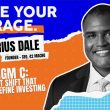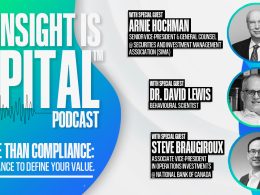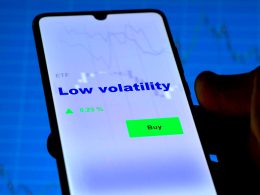Not likely, according to PIMCO's Bill Gross. In his most recent Investment Outlook, Gross, reasons and opposes (for now) the idea that in the very different worlds of Louis Rukeyser, Jim Cramer, and Jim Grant, "There's always a bull market somewhere!"
While he does agree that there are always stocks, bonds, and currencies that can be found to be going up, while markets are going down, Gross cautions:
So the lesson must be to go forth and find the bull market, wherever it is. Almost always – but NOT NOW, because in a global financial marketplace in the process of delevering, assets that go up in price are rare diamonds as opposed to grains of sand. For the past several months our PIMCO Investment Committee blackboard has continued to display the following lesson plan:
What Happens During Delevering
- Risk spreads, liquidity spreads, volatility, term premiums – they all go up.
- Delevering slows/stops when assets have been liquidated and/or sufficient capital has been raised to produce an equilibrium.
- The raising of sufficient capital now depends on the entrance of new balance sheets. Absent that, prices of almost all assets will go down.
Essentially, Gross' thesis is that as the GSEs, banks, investment banks and global hedge funds delever their balance sheets, they also lower the prices of all securities that can be arbitraged within the marketplace.
The 10% year over year decline in prices has not been witnessed since the great depression, and that is a red flag.
a 10% aggregate asset price decline does more than make us all 10% less wealthy. Because many of these assets are leveraged and margined, the more they decline, the more frequent and frenzied the margin calls, and if the additional cash flow is not provided, not only an asset liquidation but a debt liquidation follows. It is the debt liquidation that potentially turns a stagnant/recessionary economy into something much worse.
This rare event of systematic debt liquidation is the central issue in both the US and globally. If central bankers are unable to take effective measures, the campfire could turn into a forest fire, and a mild asset bear market could turn into a destructive financial tsunami. Gross points out that even they and their SWF and central bank counterparts who have been doing their part to stem the tide, and in some cases bought into debt issues too early, only to see those issues now priced "underwater," are now reluctant to make additional commitments.
Paulson and Bernanke have consulted PIMCO regularly throughout the credit market debacle, and have apparently acted on some of that advice as well as that of others like Pershing Square's Bill Ackman, who floated a Frannie bailout plan prior to the Fed's that was eerily similar.
Paul McCulley stated in late July, that the only thing that was viable given the delevering of the market that was well underway, was for government to lever up its balance sheet, much the way it is proposing to this week, with the $700-billion TARP plan.
common sense can lead to no other conclusion: if we are to prevent a continuing asset and debt liquidation of near historic proportions, we will require policies that open up the balance sheet of the U.S. Treasury – not only to Freddie and Fannie but to Mom and Pop on Main Street U.S.A., via subsidized home loans issued by the FHA and other government institutions.
Gross concludes:
Now that the Fed has spent 12 months proving that it “knows something…knows something,” it is time for the Treasury to do likewise.
(note: these ideas were published well before the Fed/Treasury realized the need for a far reaching solution)
Is there a bull market somewhere?
There is, but those assets are "rare as diamonds, as opposed to grains of sand," according to Bill Gross.
Investment Outlook, Bill Gross, September 2008
Source: PIMCO











